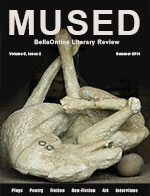Going Home
Sue Ellis
More than two decades after moving away, our family visited Waverly, Washington, the small town where we´d lived while our children were growing up. I rented the local Mason´s Lodge with its schoolhouse lunchroom for potluck, partly because of its charm (it really was a school once), and partly because it´s the only public meeting place in town. And it didn´t hurt that it´s only a block from our old house.
The town hadn´t changed much. The population sign had been upgraded to read one-hundred-six instead of the ninety-five we remembered. We noticed right away that the facade of our old house had undergone a transformation with the latest owners (there had been two since we left), sporting fresh yellow paint and gingerbread trim in burgundy and jade. I winced, remembering our home´s country farmhouse beginnings.
The fruit trees we´d planted had become mature and productive. Himalayan blackberries that had been dug on the Oregon Coast and gifted to us by my mother-in-law were now a wild bramble thirty feet in length and ten feet across. Things had changed, but altogether the place looked cherished and more settled.
My husband and I were in our twenties when we bought the house for a token fee of seventy-five dollars from a local farmer who wanted it removed from his property. It had stood empty for years, an imposing structure built in 1909, with two stories plus attic and a wide trellised porch overgrown with Dutchman´s pipe, a trailing vine.
I still remember the smell when I walked in through the back door that first time, a potpourri of aged linseed oil, attic rafters absorbing summer´s heat, and the tailings of a dusty breeze that had swept in through an open window. It spoke of different days and old ways, and although I can´t count the hours of care and cleaning that went into the home´s upkeep, the smell never really left; it was only subdued by the habits of the living. If we went away on vacation, our home quickly reverted to its olfactory beginnings.
I was smitten with the transom window over the back door, and the kitchen´s glass-fronted upper cabinets. I loved the farmhouse sink and that the lower cabinets had matching tip-out bins meant to hold twenty-five pounds of flour or sugar for baking.
I wasn´t intimidated by the cracked plaster walls and ten-foot ceilings, or the fact that the only bathroom in the five-bedroom house was on the second floor. I was head-over-heels with the wide, darkly-stained moldings, the plate rack in the dining room, and the open staircase. The floors were maple that needed refinishing, the wiring was knob and tube, and the wavy glass in the vintage glazed windows put a Monet-like blur on the view. It was altogether a charming and challenging place—exactly what we wanted.
We hired a house mover and parked our home next to a giant willow that befit its size, smack in the middle of a generous town lot. There were some harrowing moments as the house descended its former steep driveway and crossed a narrow bridge, but when it settled onto its new foundation, it did little more than sigh. We were surrounded by good neighbors, including a violinist who practiced in front of his picture window, and a guy who handed out fudgesicles for Halloween.
We might have never seen the inside of the house again, except that the day of the potluck our son and his family took a nostalgic walk around the block. The owners happened to be outside gardening.
“Hello!” my son shouted over the fence, “I grew up here!”
That was all it took. I think ten or fifteen of us were given the grand tour that day, even though my husband and youngest daughter declined the invitation, preferring to remember the house as it had been.
Our beloved old home had changed. While our furnishings had been sparse, theirs were abundant. Where our repairs left little doubt as to the fragility of the plaster ceilings, theirs were newly dry-walled and adorned with brightly painted medallions in the Victorian style. I was briefly stunned by the changes, but then I felt the familiar pull of a place that had always welcomed me. Her bones were the same, and we were surely part of her DNA. As I stood at the base of the open staircase, I had a vision of the kids flying down the carpeted steps on nylon sleeping bags, sparks flying. My Mother had loved the old house, and I felt her presence, too—the way she caressed the bannistered rail as she walked upstairs to bed, and her fondness for her small room beneath the eaves with its funny appliqued curtain and the huge, handmade trunk that held the kids´ outgrown clothes. Turning toward the dining room and the corner where our piano used to sit, the ghost of our elegant little mouse-killing cat walked across the keyboard just as he used to do when he wanted out at night.
I have developed chemical sensitivity over the years, so I was apprehensive about walking in and finding air freshener or laundry-soap smells that I couldn´t tolerate, but their home was as environmentally friendly as my own. Not only that, but as I walked upstairs, the faint scent of linseed oil was unmistakable.
So I did get to go home again, even though the old adage says that you never can, and I´d have happily stretched out on the sofa for a nap, if only it wouldn´t have been asking too much.

